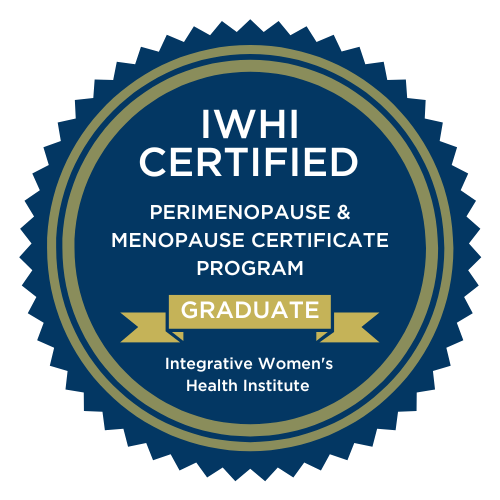Acid reflux is the backward flow of acid into the esophagus. Gastroesophageal Reflux Disease (GERD) is a more severe form of acid reflux. Both of which can cause the burning sensation known as heartburn.
In this article, I cover the lesser known mechanical causes of heartburn. But first, it’s important to note that low stomach acid (hypochlorhydria) is the main culprit of heartburn (which can be related to mechanical issues). Say what?!!! Yep, read on to find out how that could be. By the way, low stomach acid can also be related to mechanical issues, more on that later.
achlorhydria: the condition of which the stomach is producing no stomach acid
- it’s part of our immune response, as it kills bacteria in our food.
- acid activates pepsin to break down proteins
- acid helps us absorb vitamins and minerals. If you have insufficient acid you won’t absorb adequate nutrients no matter how good your diet is.
- acid signals the rest of the digestive tract that food is coming. Each step in digestion relies on the step before for proper functioning.
As always, it’s best to find the source of your acid reflux before taking a drug to fix it. This is not a complete list, but a few less known mechanical issues that can cause excess pressure and tissue strain which may lead to acid reflux. By mechanical I mean relating to, produced by, or dominated by physical forces.
1. Bloating. When the belly is bloated it can prevent the diaphragm from moving comfortably. When the bloated intestines pushes the diaphragm upward, the diaphragm pulls the junction between the esophagus and stomach upward. The negative pressure in the chest cavity attracts acid from the stomach toward the esophagus and causes heartburn. This type of reflux can be remedied by #1 addressing the cause of the bloating (SIBO, parasites, eating too quickly, eating too much, food sensitivities, sitting too much, pelvic and thoracic alignment, low stomach acid) and #2 receiving Visceral Manipulation™. One or both of these approaches may be needed depending on the root cause of the bloating. Visceral Manipulation™ has been known to help decrease bloating via improving organ motility. Visceral Manipulation™ also helps to return proper function to the LES.
There’s also the mechanical displacement of internal organs by corsets. I don’t know how anyone wears corsets. Tight garments make me want to smash things!
3. Hyperkyphosis of the thoracic spine contributes to mechanical problems in the hiatal zone. A popular belief is that hyperkyphosis stems from slouching, and that simply “sitting up straight” is the solution. However, it’s a bit more complicated than that and it may in fact start with an internally rotated arm habit.
4. Working consistently with arms overhead when you lack shoulder range of motion. This may be related to #3 because hyperkyphosis and lack of shoulder range of motion are often related. If you lack shoulder range of motion you will displace your entire ribcage to raise your arms over your head. The constant lengthening of the longitudinal fibers of the esophagus decreases the tone of the LES.
5. Retroverted Uterus Say What???? Yeah, when the uterus is tipped back the small intestines can descend and take up space where the uterus should be. This puts a downward drag on the stomach decreasing mobility of the gastroesophageal area. This can eventually degrade the tone of the of the gastroesophageal zone. I can teach you how to correct your tipped uterus in the Womb Care course.
6. Obesity from the same upward force mechanism bloating causes
7. Not chewing your food well can cause acid reflux in several ways. Mechanically: Each phase of digestion only works as well as the phase that came before. Guess what? There are no teeth in the stomach! Chewing lubricates your food, mechanically breaks it down and increases the surface area, so the enzymes can do their job effectively. Chemically: Chewing increases digestive enzymes, so that food is broken down making digestion and assimilation smoother and more efficient. Chewing more may be your ticket to eliminating reflux, bloating, gas and abdominal pain! Read more on chewing HERE.
These final two are not technically mechanical, but important not to overlook. Consider it bonus information.
8. Emotions– Stress can slow down the digestion and lead to reflux. Anger, worry, fear, you name it. Be present with your food, don’t talk politics or watch the news during meals. Read more HERE.
9. Pharmaceuticals drugs. Read the possible drug side-effects! Certain medications slow down digestion, irritate the stomach, weaken the cardiac sphincter, cause stomach inflammation.
You may also be interested in my Digestive Health Part 1 article and Digestive Health Part 2.
Update: Think twice before treating your heartburn with Proton Pump Inhibitors (acid blockers). Not only because the cause is most likely low stomach acid, but also because acid blockers are linked to many physical ailments.
“It’s not the first time that PPIs have led to health concerns. Their use has been linked to increased rates of fractures, pneumonia, the gut infection C. difficile, and low vitamin B12 and magnesium levels.” Popular heartburn drugs could lead to kidney damage without warning: study








I think I have reflux. But I don’t have that burning feeling. But my heart sometimes does strange jumps (vagus nerve?), and I can only sleep in a reclining chair. Jamie Koufman talks about pepsin enzymes hanging like lobsters in the esophagus, and acidic food like Coke (2.5 ph!) and orange juice activating them to eat you. Drinking water or eating raw carrots seems to relieve it. Then Diana Schwarzbein talks about adrenal fatigue in the 2nd Principle book, and how you need to rest more and eat better. From Katy’s digestion dvd I learned to try to increase my twisting range. How can I learn self abdominal massage?
Hi Tam, Interesting. Thanks for sharing! You could see a practitioner near you. I’m planning on developing an online class for digestive health that will include alignment and self-massage. I also teach the Arvigo self-care workshop here in Portland. https://alignmentmonkey.nurturance.net/classes/
I don’t have heartburn either but I do have reflux. There is no burning unless I eat high fat or tomatoe based dinners. I have learned to control my diet to stop the reflux.
I am interested to learn about the tilted uterus and its connection. That I do have.
I have the sensation of things stuck in my throat which they are trying to tell me is related to the reflux but when the reflux is under control, I still get it.
thanks for this interesting article!
IT seems that every time I start abdominal strenthening exercise such as planks, I have increased stomach pain that I am assuming is GERD. Worse with eating. Any one else experience this?